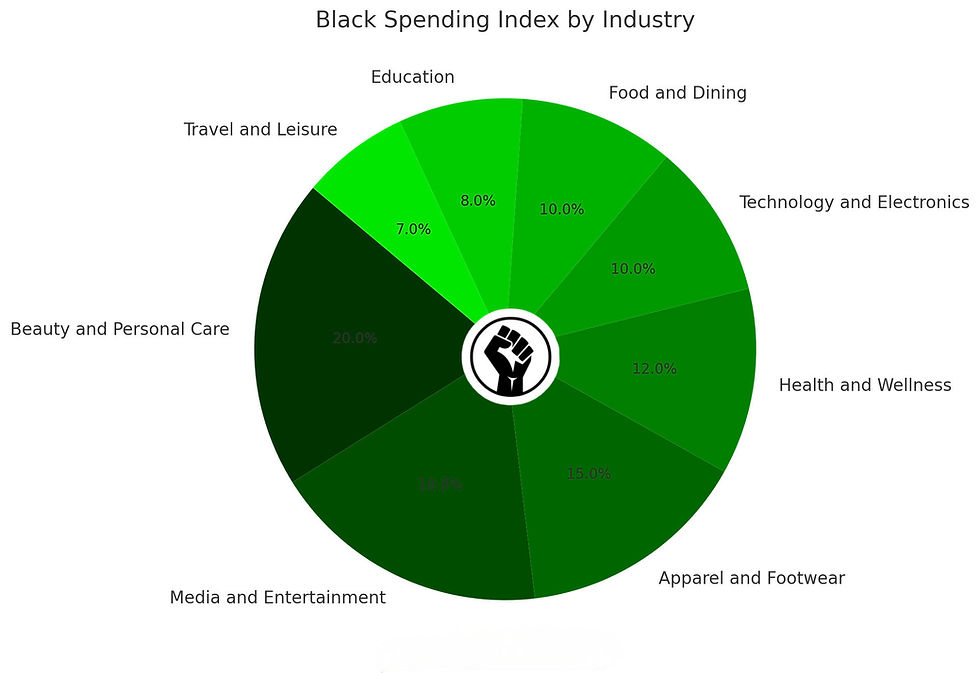From Backpacks to Hashtags: Unveiling Effective Marketing Strategies for Gen Alpha Students
- Al Lloyd

- Jul 19, 2022
- 6 min read
Updated: Mar 12, 2024
Sharping one marketing student at a time for business needs. Let's mold the next generation right, from 4P's of marketing (Product, Price, Promotion, Positioning) to more.

Welcome to my blog, dedicated exclusively to the exciting world of marketing for Gen Alpha! As the first digitally native generation, Gen Alpha presents a unique set of challenges and opportunities for marketers. Born between 2010 and 2025, this tech-savvy and highly connected generation will pave the way for the future of marketing. In this blog post, we'll explore the characteristics of Gen Alpha, uncover their preferences and behaviors, and provide valuable insights on how to effectively engage this influential demographic. Join me as we dive into the strategies, trends, and tactics that will help marketers thrive in the age of Gen Alpha. Let's get started!!
Let's Begin
“Stop interrupting what people are interested in and be what people are interested in.” -Craig Davis.”
1. Digital Marketing: With the rise of technology and social media, digital marketing has become a crucial aspect of modern marketing. Recent graduates should know about search engine optimization (SEO), social media marketing, email marketing, and other digital marketing tactics.
2. Data Analysis: In today's data-driven world, it is essential to have the ability to analyze and interpret data to make informed marketing decisions. Graduates should be familiar with tools like Google Analytics and have a basic understanding of data analysis techniques.
3. Content Marketing: Content is a powerful tool for attracting and engaging customers. Graduates should have strong writing and storytelling skills, and understand how to create and distribute valuable content for different marketing channels.
4. Branding and Positioning: Graduates should have a basic understanding of branding and positioning strategies to help a company stand out in a crowded marketplace. This includes knowledge of the target audience, brand identity, and messaging.
5. Market Research: Understanding consumer behavior and market trends is crucial for successful marketing. Graduates should know market research methods and be able to use data to identify customer needs and preferences.
6. Communication and Collaboration: Marketing is a team effort, and graduates should possess strong communication and collaboration skills to work effectively with cross-functional teams and clients.
7. Project Management: With multiple campaigns and initiatives happening simultaneously, project management skills are essential for keeping projects on track and achieving marketing goals.
8. Adaptability and Creativity: The business landscape is constantly changing, and graduates should be adaptable and able to think creatively to come up with innovative solutions to problems.
9. Budgeting and ROI Analysis: Understanding how to create and manage a marketing budget, as well as measure the return on investment (ROI) of marketing efforts, is crucial for making strategic decisions.
10. Ethics and Compliance: In today's socially conscious environment, graduates need to understand ethical and legal considerations in marketing, such as data privacy and truth in advertising.
Lacking in our field as of now
1. Industry-Specific Knowledge: Many recent graduates lack industry-specific knowledge, which can make it challenging to understand the target market and develop effective marketing strategies.
2. Networking and Relationship Building: Building relationships with clients, industry professionals, and other stakeholders is crucial in marketing. Graduates may lack the necessary networking skills to establish and maintain these relationships.
3. Sales Skills: Marketing and sales often go hand in hand, and graduates may lack the necessary sales skills to effectively promote and sell products or services.
4. Project Management Skills: While project management is a key skill, many graduates may not have had the opportunity to develop this skill in a practical setting.
5. Creative Problem-Solving: In today's fast-paced business world, graduates may lack the ability to think creatively and come up with innovative solutions to problems.
6. Multitasking: Marketing involves juggling multiple projects and tasks at once, and recent graduates may struggle with multitasking and time management.
7. Presentation Skills: As marketing often involves pitching ideas and presenting to clients or stakeholders, graduates may lack the necessary presentation skills to effectively communicate their ideas.
8. Cultural Awareness: With globalization, marketing campaigns often need to be tailored to different cultures and audiences. Graduates may lack cultural awareness and sensitivity, which could lead to ineffective or offensive marketing.
9. Technical Skills: In addition to digital marketing skills, graduates may lack proficiency in other technical areas, such as graphic design, video editing, or website development.
10. Business Acumen: Successful marketing involves understanding the business as a whole, including financials, operations, and strategic goals. Graduates may lack the necessary business acumen to make strategic marketing decisions.
Most Importantly
Marketing is the art of captivating hearts and minds - it is an opportunity to weave the strands of creativity, strategy, and consumer understanding. Through marketing, we create moments of connection that transcend borders and languages, touching lives in ways we may never know. It allows us to craft narratives that inspire, evoke emotions, and ignite curiosity. In this boundless realm, there are no limits to what we can achieve. From shaping brands to influencing cultures and creating positive change, marketing presents an invitation to make a lasting impact. So, let us embrace this exhilarating journey and unlock the hidden potential within us to captivate, innovate, and truly make a difference in the world. Let's embark on this thrilling adventure called marketing, and together, create a legacy that resonates for generations to come.
Part 2
Understanding Gen Z
To effectively market to Gen Z via social media, it is crucial to first understand this demographic group. Gen Z refers to individuals born between the mid-1990s and early 2010s, making them the generation that follows Millennials. They are digital natives who have grown up with technology and social media as integral parts of their lives. Gen Z is known for being tech-savvy, socially conscious, diverse, and highly connected.
Key Strategies for Marketing to Gen Z on Social Media
Authenticity: Gen Z values authenticity and transparency in brands. They prefer genuine content over overly polished or staged advertisements. To resonate with this audience, brands should focus on creating authentic and relatable content that aligns with their values and interests.
Engagement: Gen Z craves interactive and engaging experiences on social media. Brands can leverage features like polls, quizzes, challenges, and user-generated content to encourage active participation from this demographic. Engaging with users in a two-way conversation rather than just broadcasting messages is key.
Visual Content: Visual platforms like Instagram, TikTok, and Snapchat are popular among Gen Z. Utilizing visually appealing content such as videos, images, GIFs, and memes can capture their attention effectively. Short-form video content has particularly gained traction among Gen Z audiences.
Influencer Partnerships: Influencer marketing plays a significant role in reaching Gen Z on social media. Collaborating with influencers who resonate with this demographic can help amplify brand messaging and reach a wider audience in an authentic way.
Cause Marketing: Gen Z is passionate about social issues and expects brands to take a stand on important causes. Incorporating purpose-driven marketing campaigns that support social or environmental causes can help build credibility and loyalty among Gen Z consumers.
Mobile Optimization: Given that Gen Z primarily accesses social media through mobile devices, it is essential for brands to ensure that their content is optimized for mobile viewing. Mobile-friendly websites, apps, and ads are imperative for reaching this audience effectively.
Personalization: Tailoring content to individual preferences and behaviors can enhance the overall user experience for Gen Z consumers. Leveraging data analytics and AI-driven personalization tools can help deliver targeted content that resonates with this demographic.
Conclusion
In conclusion, marketing to Gen Z on social media requires a deep understanding of their preferences, behaviors, and values. By prioritizing authenticity, engagement, visual content, influencer partnerships, cause marketing, mobile optimization, and personalization strategies, brands can effectively connect with Gen Z audiences on various social media platforms.
Top 3 Authoritative Sources Used:
Pew Research Center: The Pew Research Center provides valuable insights into generational trends and behaviors, including detailed research on Gen Z demographics and preferences.
HubSpot: HubSpot offers comprehensive resources on digital marketing strategies tailored to different audience segments, including tips for engaging with Gen Z on social media.
Forbes: Forbes covers industry trends and best practices in marketing to various demographics, including articles specifically focused on reaching Gen Z consumers through social media platforms.
These sources were instrumental in providing reliable information and expert perspectives on effectively marketing to Gen Z via social media platforms.









Comments